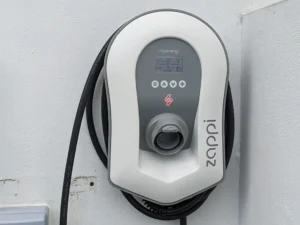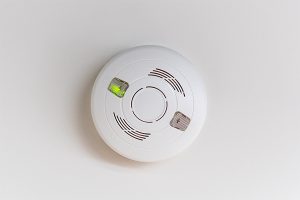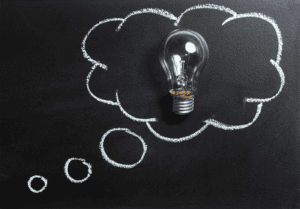It may seem strange to think of fires as one of the biggest problems of the coldest time of year, but the pattern is clear. Last winter, there were over 15% more preventable house fires than in the preceding seasons, according to data from the CFA and MFB.
The increased incidence of electrical fires can be traced to more frequent and prolonged use of various electrical appliances, such as lamps, heaters, and even kitchen equipment. As the chill creeps in and the days shorten, people stay in more while turning to artificial sources for light and heat. Without proper precautions, these become fire hazards.
On the other hand, with a few simple precautions, you can quickly and effectively reduce your risk of electrical fires. It’s simply a matter of attending to your appliances and electrical systems, ensuring your safety mechanisms are in order and, when necessary, getting help from professional electricians.
Precautions for Appliances and Electrical Systems
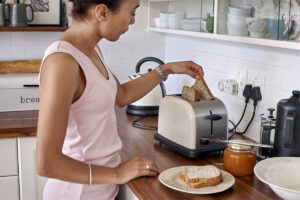
The Australia Fire Services attribute the frequent winter electrical house fires mainly to the use of electrical appliances. As such, your precautions should start with these.
Lighting
Electronic lighting is common enough that most people wouldn’t think it a hazard—and for the most part, it isn’t. However, certain kinds of lighting, especially light bulbs and incandescent lighting, can still risk starting a fire.
Here are some steps to minimise fire hazards from lights:
- Don’t position light bulbs near fabrics or combustible materials
- Ensure all plugs, wires, and other points of connection are in good condition
- Use LED lighting as much as possible
Heating
It’s common for people to supplement centralised heating with additional space heaters or electric blankets. This setup works fine for limited durations—a few of hours each use, for instance—but for more persistent heating needs, it’s best to consider a comprehensive heating, ventilation, and air conditioning (HVAC) system.
Space Heaters
Space heaters may provide moderate head to a small area, but in their direct vicinity, the temperature spikes significantly. Avoiding fires caused by space heaters is therefore largely a matter of keeping them away from flammable materials or anything that could interfere with their heat regulation.
Here are some specific tips:
- Position the space heater at least one metre from flammable materials (including wet fabrics left to dry)
- Keep it out of parts of the house with lots of foot traffic; a quiet corner of the room is best
- If you have young children, keep the space heater somewhere they can’t reach it
- Clean the heater filters before use to remove any dust that may have accumulated
- Unplug your heater when not in use; it’s also advisable to use one with an automatic shut-off feature
Electric Blankets
Electric blankets (also called heated quilts, duvets, etc.) are another winter mainstay. These devices use insulated wires running through a sheet to distribute heat evenly while providing insulation. This design requires that heat is kept moderate throughout, however. Too much heat or insulation in one area increases the risk of the blanket or nearby objects catching fire.
Here’s how to properly use and store an electric blanket:
- Don’t put another blanket on top of an electric blanket
- Don’t sleep on top of it, unless it is specifically an electric underblanket
- Don’t crease or crumple it when storing it; the best way to store it is to hang it or roll it loosely
- Don’t use it when wet; dry it thoroughly after washing before use
- Keep it out of reach of pets
- Unplug it when not in use; it’s also advisable to use one with an automatic shut-off feature
General Electrical Safety
In addition to guidelines for specific devices, there are some safety measures you can take to reduce the risk of electrical fires in general. These include ensuring your devices are in good condition and maintaining the safety mechanisms that protect your house in case of electrical fires.
Wiring and Plugs
Poorly managed plugs and wiring can significantly increase your risk of electrical fires, regardless of the specific devices in question. In addition to ensuring your devices are in good condition, keep the following considerations in mind:
- Make sure all wires have their insulation intact and that all plugs have undamaged housing
- Make sure all plastic socket closures are intact
- Secure extension cords and octopus plugs
- Use octopus plugs sparingly; don’t overload your sockets
- Ensure that all appliances are plugged into sockets of the correct voltage
Safety Mechanisms

Every house should have some safety mechanisms that can protect in case of fire. Here are some in particular that you should check on when winter rolls around:
- Smoke Alarm: It’s not just enough to have a smoke alarm in good working order; you need to have the right number for your residence. You should have one in each bedroom and another one for each level of the house, placed in a common area. Testing each one is as simple as pressing a button to see if it beeps.
- Safety Switches: A safety switch is a device that can cut power in an instant when needed. You’ll find your safety switches in your switchboards, typically marked with a ‘test’ button (sometimes marked ‘T’). Press it to see if the power cuts off. Test each safety switch individually.
Assistance from Professional Electricians
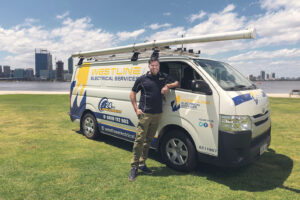
Occasionally, you will run into a problem that can’t be solved by simply swapping out an old part or replacing a broken appliance. For this reason, and for purposes of general maintenance, it’s best to obtain the services of a professional electrician.
Safety Inspections: A professional electrician is better equipped to identify and resolve problems in your electrical system. This can include damaged wires, faulty electrical panels, and outdated components. It’s advisable to have a regular safety inspection conducted by a professional.
Emergency Electricians: It’s good to have a 24/7 electrician in Perth available to respond after hours to unexpected, urgent problems. For your safety and peace of mind, make sure you have the contact details of an electrician who can perform provide emergency services within your area.
Contact us today on (08) 9220 5201


